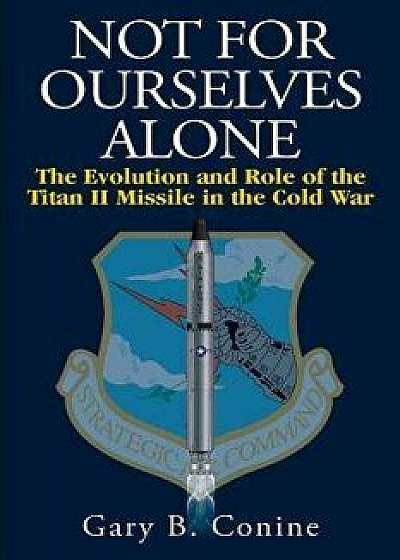
Not for Ourselves Alone: The Evolution and Role of the Titan II Missile in the Cold War, Paperback/Gary B. Conine
Descriere
Astronaut Gus Grissom called it a "Big Beast." For General Curtis Le May, it was the Strategic Air Command's "Ultimate Weapon." It was both feared and admired by the Soviet Union, while in NATO Europe it would come to be regarded as the symbol of American strength and resolve. It enabled NASA to capture the lead in the space race, held the Western Alliance together during some of its most difficult periods, and was praised by the Pentagon as a system that created a degree of deterrence far beyond what was expected. The Titan II, conceived as the second-generation ICBM that would close the impending missile gap following the launch of Sputnik in 1957, became the West's largest and most threatening ballistic missile. For 25 years, from the end of the Cuban Missile Crisis to the eve of the collapse of the Soviet Bloc, 54 of these ten-story missiles, each capable of delivering 31/2 times the explosive power of all bombs dropped by allied forces in the European theater during World War II, were kept on alert in underground silos in the firm conviction that their very existence would deter war and restrain the ideological ambitions of the U. S.S. R. Not for Ourselves Alone traces the major developments in the Cold War that led to and justified the free world's most devastating weapon and brings the story of the Titan II to life, going beyond the missile's amazing technical features to explore the vision, genius and tenacity of the individuals responsible for creating America's most powerful ICBM and the controversies that surrounded the missile from its inception to its much-delayed retirement in 1987. In an era when renewal of the Cold War seems increasingly possible, the history of the Titan II provides a unique perspective on the role of nuclear deterrence, the necessity of aggressively pursuing scientific and technological advances, the significance of adequate planning and flexibility in weapon acquisitions, the dangers and intricacies of arms negotiations, and the impo





